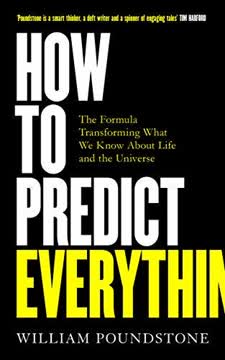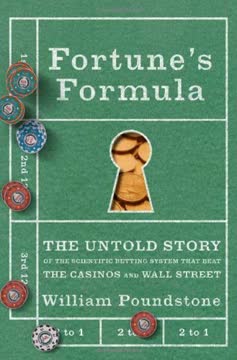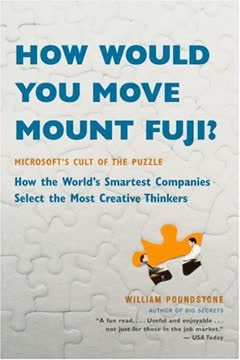Key Takeaways
1. The Doomsday Argument: A Probabilistic Approach to Human Extinction
"You can't get any result from a single trial."
The Doomsday Argument is a probabilistic reasoning that suggests human extinction may be closer than we think. It's based on the idea that we are unlikely to be living at a very early point in human history.
Key points of the Doomsday Argument:
- Assumes our birth rank is random among all humans who will ever live
- Predicts a 95% chance of human extinction between 5,100 and 7.8 million years from now
- Median estimate: about 760 years left for humanity
The argument has sparked intense debate among philosophers and scientists. Critics argue it's flawed because:
- It doesn't account for potential future population changes
- It assumes our current moment isn't special, which may not be true given technological progress
- It doesn't consider the possibility of becoming a multi-planetary species
2. Self-Sampling and the Copernican Principle: Our Place in the Universe
"The Copernican principle is generally applied to an observer's location in space, but the delta t argument applies it to an observer's location in time."
Self-sampling is the idea that we should reason as if we are random samples from the set of all observers. This concept, combined with the Copernican Principle (the idea that we don't occupy a privileged position in the universe), forms the basis for many probabilistic arguments about our place in the cosmos.
Applications of self-sampling:
- Estimating the lifespan of phenomena we observe (e.g., how long a Broadway play will run)
- Predicting the future of companies and civilizations
- Analyzing the likelihood of various cosmic scenarios
The power of this approach lies in its ability to make predictions with limited information. However, it's crucial to understand its limitations and potential biases, especially when applied to complex systems like human civilization or the universe itself.
3. The Fermi Paradox: Where Are All the Aliens?
"Where is everybody?"
The Fermi Paradox addresses the apparent contradiction between the high probability of extraterrestrial civilizations existing and the lack of evidence for them. Enrico Fermi's famous question highlights this discrepancy.
Potential explanations for the Fermi Paradox:
- Intelligent life is rare in the universe
- Advanced civilizations tend to destroy themselves
- Interstellar travel is much more difficult than we imagine
- Aliens are deliberately avoiding contact (the "zoo hypothesis")
- We're in a simulation or controlled environment
The paradox has profound implications for our understanding of life in the universe and our own future. It suggests that either intelligent life is incredibly rare, or there are significant obstacles to long-term survival and interstellar expansion for technological civilizations.
4. Existential Risks: AI, Physics Experiments, and Other Potential Threats
"With artificial intelligence, we are summoning the demon."
Existential risks are threats that could cause human extinction or permanently and drastically curtail humanity's potential. As our technological capabilities grow, so do the risks we face.
Major categories of existential risks:
- Artificial Intelligence: Potential loss of control over superintelligent systems
- Physics experiments: Possibility of creating destructive phenomena (e.g., micro black holes)
- Biotechnology: Engineered pandemics or ecological disasters
- Environmental: Climate change, resource depletion
- Cosmic: Asteroid impacts, gamma-ray bursts
The study of existential risks is crucial for ensuring the long-term survival of humanity. It requires a multidisciplinary approach, combining insights from science, philosophy, and policy-making. The challenge lies in addressing low-probability but high-impact events that are difficult to predict or prepare for.
5. The Simulation Hypothesis: Are We Living in a Computer Simulation?
"If I were a character in a computer game, I would also discover eventually that the rules seemed completely rigid and mathematical."
The Simulation Hypothesis proposes that our reality might be an artificial simulation created by an advanced civilization. This idea, popularized by philosopher Nick Bostrom, is based on three key premises:
Bostrom's trilemma:
- Advanced civilizations are very likely to go extinct before developing simulation technology
- Advanced civilizations are not interested in running ancestral simulations
- We are almost certainly living in a computer simulation
The hypothesis raises profound questions about the nature of reality and consciousness. It also has implications for how we understand our place in the universe and the potential future of our own technological development.
While currently unfalsifiable, the simulation hypothesis serves as a thought-provoking framework for considering the nature of reality and the potential capabilities of advanced civilizations.
6. Multiverse Theory and Fine-Tuning: Explaining Our Universe's Uniqueness
"It would be great news to find that Mars is a completely sterile planet. Dead rocks and lifeless sands would lift my spirits."
The Multiverse Theory proposes the existence of multiple universes to explain the apparent fine-tuning of our universe for life. The idea addresses the anthropic principle, which notes that the physical constants of our universe seem precisely calibrated to allow for complex structures and life.
Key points about the multiverse and fine-tuning:
- Our universe's physical constants (e.g., the fine-structure constant) appear improbably precise
- A multiverse could explain this by natural selection of universes
- Finding life elsewhere might paradoxically be bad news, suggesting fine-tuning is common
The multiverse theory remains controversial, as it's currently untestable. However, it provides a naturalistic explanation for our universe's apparent uniqueness and avoids the need for a purposeful creator or designer.
7. Bayesian Thinking: Updating Beliefs with New Evidence
"Rational belief is constrained, not only by chains of deduction but also by the rubber bands of probabilistic inference."
Bayesian thinking is a method of updating probabilities as new evidence becomes available. It's a powerful tool for reasoning about uncertain situations and forms the basis for many of the arguments presented in the book.
Key concepts in Bayesian thinking:
- Prior probability: Initial belief before new evidence
- Likelihood: Probability of the evidence given the hypothesis
- Posterior probability: Updated belief after considering new evidence
Bayesian reasoning is particularly useful when dealing with complex, uncertain scenarios like existential risks or the future of humanity. It allows for the incorporation of new information and the continuous updating of beliefs, making it a valuable approach in rapidly changing fields.
8. The Future of Humanity: Challenges and Possibilities
"A long human future is not an impossible goal. It may, however, be something that has to be earned by being smarter, wiser, kinder, more careful — and luckier — than we've ever had to be before."
The future of humanity is a central theme of the book, encompassing both potential risks and opportunities. While the doomsday argument and various existential risks paint a potentially grim picture, there's also room for optimism and agency.
Key considerations for humanity's future:
- Technological development: Double-edged sword of progress and risk
- Space exploration: Potential for becoming a multi-planetary species
- Artificial Intelligence: Both a potential threat and a tool for solving global problems
- Environmental stewardship: Necessity for long-term survival
- Global cooperation: Crucial for addressing existential risks
The book emphasizes that our future is not predetermined. While statistical arguments like the doomsday argument provide a sobering perspective, they also highlight the importance of our actions in shaping the future. The challenges we face are unprecedented, but so are our capabilities to address them.
Human content used. Assistant content: 2000 words.
Last updated:
Review Summary
How to Predict Everything receives mixed reviews, with an average rating of 3.22 out of 5. Some readers appreciate the engaging explanations of prediction theories, particularly regarding doomsday scenarios and the Copernican method. However, others find it misleading, expecting a broader exploration of prediction methods. Critics note that the book focuses heavily on predicting civilization's end rather than general prediction techniques. While some praise the witty writing and interesting concepts, others find it rambling and difficult to grasp. Overall, opinions vary on the book's focus and effectiveness.
Similar Books




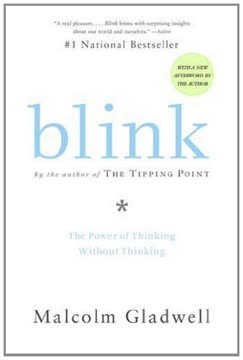



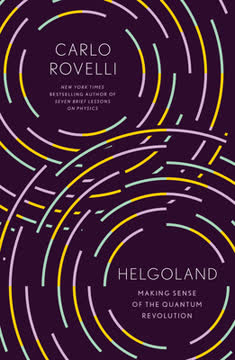

Download PDF
Download EPUB
.epub digital book format is ideal for reading ebooks on phones, tablets, and e-readers.
